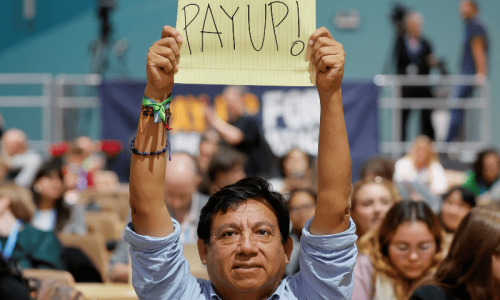ISLAMABAD: The power sector is likely to witness an early return of outages over the next few days owing to problems relating to financial and fuel supplies.
The problems stem from inability of the government to disburse funds to the power sector despite approvals at the highest level because of pre-audit issues in the public sector and constraints in fuel supplies to Karachi.
This comes at a time when the temperatures are projected to rise swiftly beyond 35 degrees centigrade in Punjab and even higher in Karachi by this weekend. The fresh flow of circular debt was estimated at Rs541 billion by the end of December this year, besides Rs485bn marked in Power Holding Company as debt.
A senior government official told Dawn that the Economic Coordination Committee (ECC) of the cabinet headed by Prime Minister Shahid Khaqan Abbasi had approved on March 8 a payment of Rs80bn for the power sector upfront, followed by two tranches of Rs30bn each with weekly gaps to bring down circular debt, but this had not be disbursed so far.
Govt lifts ban on import of furnace oil for K-Electric provided it is not diverted to other power plants
He said that in the heat of controversy over the payment of Rs480bn circular debt in 2013, the then auditor general of Pakistan (AGP) Buland Akhtar Rana had told parliamentary committees that the payments were made without mandatory pre-audit. Later, chairman of the Senate Standing Committee on Finance Saleem Mandviwalla forwarded the case to the National Accountability Bureau for investigation.
The bureaucracy was cautious this time and moved the Rs80bn payment case to the AGP for pre-audit. The AGP office is reported to have expressed its inability to be of any help for pre-audit because no precedent was available in the country’s recent history.
“The payments are still in limbo and closure of many power plants, particularly those in the private sector, is looming,” the official said.
When contacted, a spokesman for the power division confirmed that the AGP had declined to pre-audit payments on account of circular debt. He said the finance and power divisions were making efforts to find a way out on the basis of the ECC decisions. He agreed that smooth power supply would depend on payments to the power plants and fuel suppliers within two days.
On the other hand, the government has lifted a ban on import of furnace oil for K-Electric provided it is not diverted to other power plants. The government was told that the ban had been imposed by the Cabinet Committee on Energy (CCE) headed by Prime Minister Abbasi on Oct 27 last year to ensure maximum consumption of liquefied natural gas (LNG) in power plants.
While the ban caused serious problems for local refineries and reduced their capacity utilisation, the Pakistan State Oil (PSO) had to reschedule some import orders and suffered financial losses as the storages filled to capacity. The ban also caused problems for K-Electric whose many old plants are still dependant on furnace oil and need to be fully utilised in coming days due to the rise in temperature and the subsequent increase in electricity demand.
The government had last month allowed arrival of a couple of delayed furnace oil import to meet KE’s needs. The power and petroleum divisions have since been engaged in consultation to make a way out of the ban for KE. On March 7, the two divisions concluded, “restriction of furnace oil import does not include K-Electric system and that import of furnace oil for KE plants should be sorted out independently.”
The PSO was ordered to independently work out the fuel requirements of KE plants “to avoid any power crisis in Karachi region” in consultation with KE and import furnace oil if required over and above the availability of local refinery product.
The power and petroleum divisions also held that import volumes and schedules should be determined and finalised during monthly product review meetings after analysing the overall furnace oil demand and supply scenario. “PSO and K-Electric shall ensure that import so arranged is not diverted to any other power plant or power company,” the order said.
This did not go down well with the PSO apparently because there was no room for independent arrangement between the PSO and KE if monthly product review meetings led by the oil regulator and the petroleum division were to decide the quantity and schedules.
The top mandarins of the two divisions met again and issued another order a few days ago, stating that the “approval from CCE was not required in the case of K-Electric demand”.
Published in Dawn, March 29th, 2018















































Dear visitor, the comments section is undergoing an overhaul and will return soon.